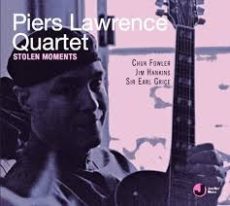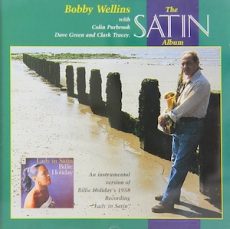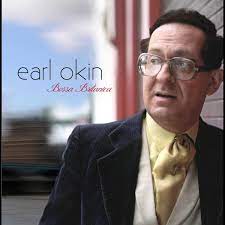
Daily Dose Of Jazz…
Kirk Whalum was born July 11, 1958 in Memphis, Tennessee into a musical family, singing in his father’s church choir. He got his love of music from his piano teacher grandmother and two uncles who performed with jazz bands around the country. After graduating from Melrose High School he attended Texas Southern University where he was a member of the renowned Ocean of Soul Marching Band.
By 1986 he performed at Jean-Michel Jarre’s giant concerts Rendez-Vous Houston and Rendez-Vous Lyon. Whalum would go on to record with Jevetta Steele, Luther Vandross and tour with Whitney Houston, soloing on her single I Will Always Love You.
Kirk has worked on a number of film scores, including for The Prince of Tides, Boyz n the Hood, The Bodyguard, Grand Canyon, Cousins and contributed to the 2008 documentary film Miss HIV. As a leader he has recorded a series of well received albums and has twelve Grammy nominations and his first Grammy award in 2011 for Best Gospel Song.
He is the inaugural Jazz Legend honoree of the National Museum of African American Music in Nashville, Tennessee, joined the faculty of Visible Music College and received a Brass Note on Historic Beale Street, both in Memphis.
More Posts: bandleader,flute,history,instrumental,jazz,music,saxophone,songwriter

Daily Dose Of Jazz…
Piers Lawrence was born on April 19th in Manhattan, New York and raised in Palo Alto, California and Switzerland. He attended the Conservatoire de Musique de Lausanne. After finishing his studies he made San Diego, California his new home and established himself as a solo guitarist, band leader and session musician.
An alum of the Harlem-based Jazz-Mobile Orchestra he studied with Barry Galbraith and Ted Dunbar. Piers has played Broadway shows including Guys and Dolls, Dancin’, Eubie, and Your Arms Too Short to Box With God. He has toured and recorded with Wilson Picket, The Main Ingredient, Esther Phillips, Phyllis Hyman, The Caribbean All-Stars and Merl Saunders and the Rainforest Band.
He is the lead guitarist for the San Diego based Soul Jazz AllStars and the Piers Lawrence Quartet. He established a record label, JazzNet Media, which produces independent projects and Ambient Music for film and television.
Guitarist and songwriter Piers Lawrence continues to grace the stages of venues and festivals across the nation, service his corporate clients, and perform and record with Narada Michael Walden, Sammy Figueroa, Jerry Garcia and Tommy Flanagan, to name a few of the many.
More Posts: bandleader,guitar,history,instrumental,jazz,music,songwriter

Daily Dose Of Jazz…
Colin Thomas Purbrook was born February 26, 1936 in Seaford, East Sussex, England and learned piano from the age of six from his father, who was also a professional pianist. As an eleven year old, in 1947 he won three Challenge Cups at the Brighton Music Festival. He went on to study music at the Fitzwilliam College, Cambridge. As well as playing piano, he also played the trombone with the Cambridge University Jazz Band.
Leaving Cambridge in 1957 he joined Sandy Brown’s quintet on double bass for a six-month period at the popular Oxford Street 100 Club. He played piano for three years with Al Fairweather’s All Stars, and also played with Kenny Ball, both as a pianist, trumpeter and double bassist. In the early 1960s he worked with Kenny Baker, Ian Carr, Tony Coe, Bert Courtley, Jimmy Deuchar, Wally Fawkes, Alan Ganley, Derek Hogg, Dudley Moore, John Picard, Don Rendell, Ronnie Ross, and Ronnie Scott.
In 1961 he worked alongside composer and musician Charles Mingus on the music score for the film All Night Long which was eventually released in 1962. Later in the decade he continued working with Brown and Coe, as well as with Brian Lemon, Humphrey Lyttelton, and Phil Seamen on drums. He played piano for the BBC 2’s music programme Jazz 625 with Dakota Staton and the Keith Christie All Stars respectively and was a member of Benny Goodman’s sextet when the clarinetist recorded a special gala performance for BBC2 in 1964.
He often played with drummer Phil Seamen, joining his trio during the late 1960s and early ’70s. Colin was a frequent sideman for Americans touring the UK, and worked over the course of his career with Chet Baker, Ruby Braff, Benny Carter, Doc Cheatham, Eddie Lockjaw Davis, Art Farmer, Dexter Gordon, Barney Kessel, Howard McGhee, James Moody, Annie Ross, Zoot Sims, and Buddy Tate. He was involved with the production of a number of stage plays from the 1970s through the 1990s. He led trios and quartets into the 1990s, took up a couple of residencies as a solo pianist, and continued to tour and appear on radio and television and, despite the fact that he began to suffer from rheumatoid arthritis in 1995.
Pianist, double bassist, trumpeter and songwriter Colin Purbrook, who also led his own smaller and larger ensembles, died in London, England of cancer on February 5, 1999.
More Posts: double bass,history,instrumental,jazz,music,piano,songwriter,trumpet

Daily Dose Of Jazz…
Earl Okin was born in Carshalton, Surrey, England on January 31, 1947 and has lived in the West London neighborhood of Notting Hill since he was six years old. In 1959, at the age of 12, he appeared on a BBC TV talent show “All Your Own” playing guitar and singing his own songs. He wrote for The Beatles publisher Dick James.
Recording his first single at Abbey Road in 1967, some of his songs were covered during the 1960s by Cilla Black, Georgie Fame and Helen Shapiro. During the 1970s, Okin started to perform as a support act in large venues, beginning with folk acts and progressing to open for a variety of acts such as Jean-Luc Ponty and Van Morrison. However, it was the 1979 invitation to tour with Paul McCartney and Wings which prompted him to pursue his musical career full-time, and perform at jazz festivals.
In 1981, he appeared on the tv show Parkinson and was invited by Nigel Planer to perform at the Comic Strip. This led to his second career on the alternative comedy circuit where he remains a headline act. However, his act continues to be primarily musical. He has never performed stand-up. Fans’ favourite comedy songs of his are Mango, Bessie and My Room.
Working as a songwriter and jazz singer/musician, with a particular interest in bossa nova, he gives concerts in Brazil from time to time, as well as touring his one-man show, a mixture of music and comedy, worldwide. He has performed in New York City, toured India, Singapore, other nearby countries, and at home in London’s major venues.
He has released two singles, thirteen albums, written an autobiography, composed a six-movement symphony, and produced a biographical documentary Who is Earl Okin? Singer, songwriter, guitarist, pianist and comedian Earl Okin continues to perform and tour.
Acquaint an inquisitive mind with a dose of a Carshalton vocalist who is in the company of musical genius around the world as a member of the jazz canon…
More Posts: comedian,guitar,history,instrumental,jazz,music,piano,songwriter,vocal

Daily Dose Of Jazz…
Joyce Breach was born in Alameda, California on February 27, 1944 and was raised in Kansas City, Missouri. She grew up listening to and admiring Rosemary Clooney, Doris Day, Peggy Lee, Judy Garland, Sarah Vaughan, Abbey Lincoln, and Frank Sinatra. She gleaned from their phrasing and inflections to develop her own indelible style.
After attending West Virginia University she settled in Pittsburgh, Pennsylvania where she made a name for herself in the ’80s and enjoyed a loyal following in Steel Town. Relocating to New York City, where she has made even bigger strides wowing audiences and reviewers at some of Manhattan’s top clubs.
She recorded her debut album Confessions in 1990 on Audiophile Records, and has gone on to record Lovers After All, Songbird, Nothing But Blue Skies, This Moment, Reel Songs, and Love Is the Thing. She has been featured on Loonis McGlohon & Friends’ A Christmas Memory.
As a songwriter Joyce often collaborates with pianist/arranger Keith Ingham and he usually accompanies her live appearances in the New York area, and has performed across the country. She continues to write, performa nd record.
More Posts: bandleader,history,instrumental,jazz,music,songwriter,vocal






